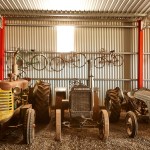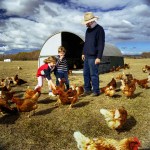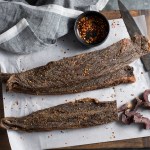Tractor models are parked, row upon row, in colour-coded sections that range from greens to…
Wagyu beef – conception to consumption
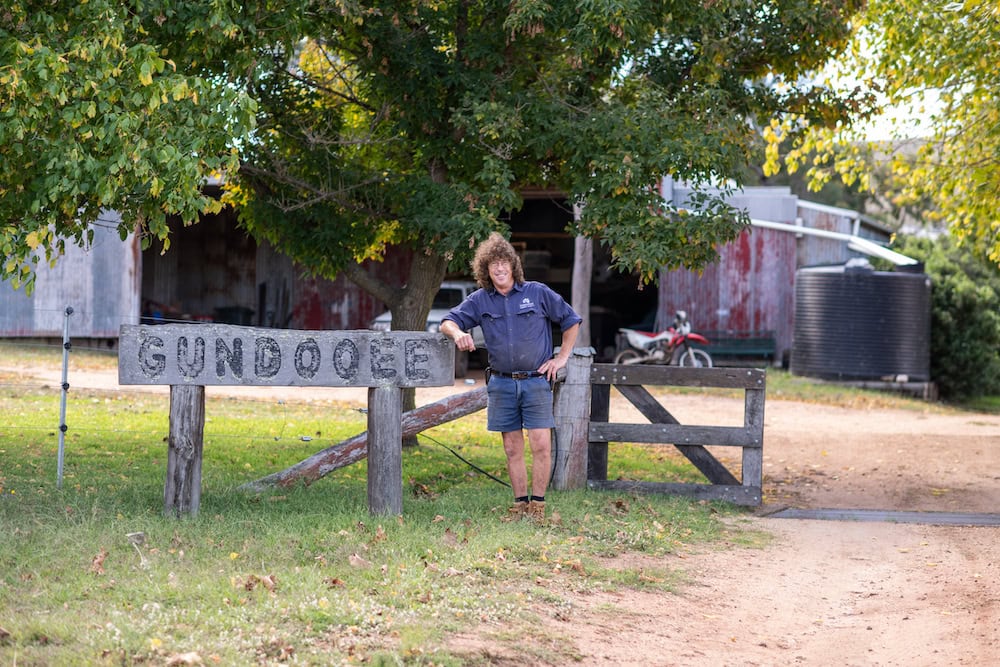
Rob Lennon’s organic Wagyu beef farm nestled amongst pasture-laden hills near Dunedoo began some years ago, and right from the beginning, his business and farm was different to others.
Gundooee Organics is the first Wagyu farm to be organically certified in Australia, with ethical and ecologically regenerative farming techniques driving Rob’s vision. And he is still as passionate about farming as he was 22 years ago when it all began with the purchase of a block of land.
With Irish farmers for ancestors, Rob says farming is in his blood. First he got his truck license and started wheat carting, and then he went on to study at a farm management college.

Rob doesn’t sell his cattle to saleyards, supermarkets or abattoirs. Instead, he operates his business by retaining ownership of the cattle right through to the roller doors of the butchers, shops or restaurant – selling award-winning organic Wagyu from Melbourne to Mackay. It’s a unique approach in his field, and he is a firm believer that he sells food, not cattle or carcase.
“Instead of from paddock to plate, I go a bit further and call it from conception to colon,” Rob explains.
“I want my food to taste good, be nutrient-dense and of course, digestible. After years of drought, heat and flies it was really starting to wear me down but, when you get a call from someone saying how much they really enjoyed your beef, there’s a connection and a moment of real pride. It’s very meaningful.”
Wagyu farmer Rob Lennon.
Soil health explained, and why it’s good for Wagyu
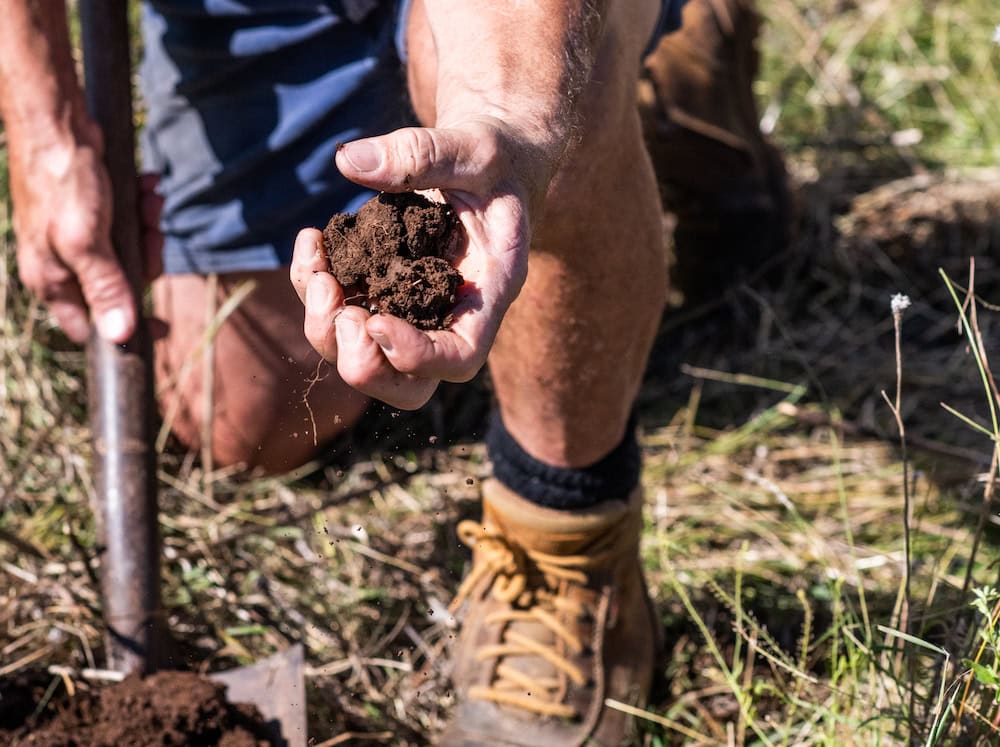
Rob views himself as a micro-farmer, and his greatest farming priority is soil health. He achieves this through regenerative farming practices such as avoiding chemical pesticides and synthetic fertilisers, operating a continuous livestock rotation, and other agroecology methods. Rob’s farm is a thriving food system with deep arable topsoils.
“I have a photograph from 2003, and in it, the hill behind my house is purple with Paterson’s curse. There wasn’t a lot of grazing pressure from that time, and after three years, I could hardly find a single Paterson’s curse plant. I often make a joke that I changed things just by sitting on the veranda. In other words, I did nothing proactive to get rid of the weed. I simply let it move through its successional phases.”
Rob first encountered a conversation on living soil health at a field day in Coolah.
“I remember thinking ahh – I get it. I’m finally understanding how it all comes together.”
The message was clear – don’t be greedy. And so, Rob began to change his practice, taking only what pasture was needed and investing the rest back into the farm.
“When I bought this property, it was clear that it was meant for organics. But back then, all I knew was to take your boots off at the door and leave gates as you found them.”
Rob Lennon
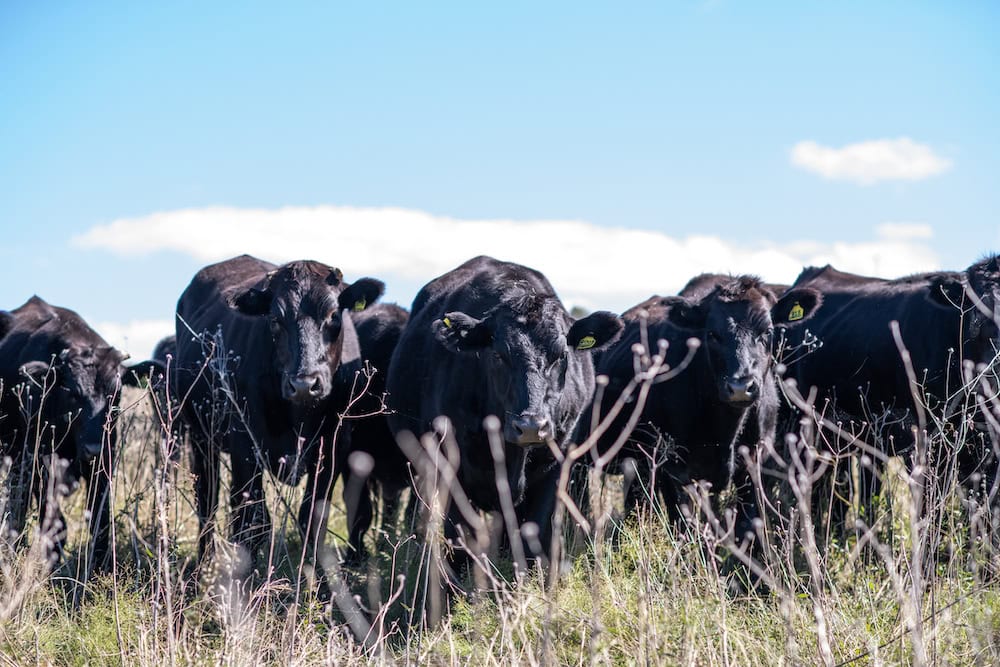
Rob put water troughs in all the paddocks after he divided them up, and he saw some massive changes in the farm over time by simply having 100 per cent ground cover, 100 per cent of the time.
“The depth of the topsoil is eight inches with a shovel now. In the good old days, it may have been three to four inches of soil, and that wasn’t great quality. Roots establish themselves many feet down and that’s when they hit clay. It’s a duplex soil type.”
Ron Lennon.
Soil health is not reflected in certified organic auditing or testing. “When auditors arrive for testing, they’re interested in traceability, the absence of prohibited inputs (chemicals and herbicides, pesticides, fertilisers and GMOs) and some animal welfare issues. There’s no ongoing testing for soil health, carbon or water holding capacity.”
Rob is pleased with his certified organic label, however he finds the organic certification structures to be limited when it comes to measuring a farm’s holistic ecosystem. Instead, Rob invests in system resilience, as he believes that soil health extensively affects the farm environment, the quality of meat for consumption, and the nutrient density of the beef.
After the 2017 Sir Ivan fire, Rob implemented de-stocking with short-term agistment and pasture closures to assist the regeneration of annual and perennial grasses. According to a test result on his property, Rob’s farm has over 75 different species of deep-rooted perennials and annuals.
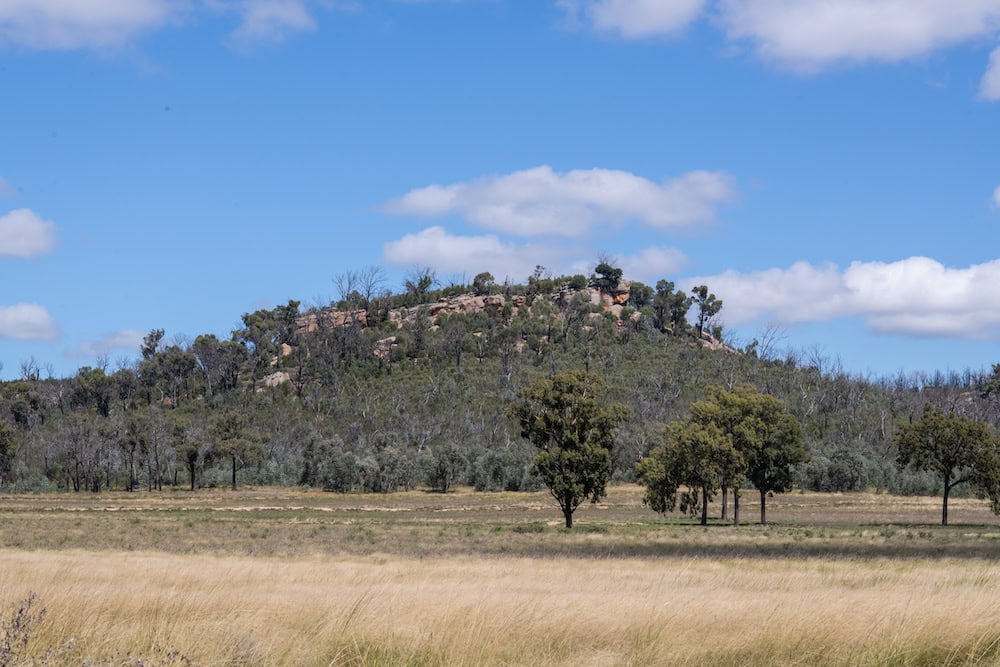
Essential ingredients from the earth
Regenerative farming allows cattle to graze for nutrients and components of pasture species that they need and crave, much like humans. For instance,
a pregnant cow needs different nutrients to one that’s not. All of this impacts the quality of food produced.
“There’s always variants in there, and diversity at every level is where the strength and resilience of a system comes into play,” explains Rob.
“It’s great tasting beef when it’s grown the right way, and it’s also highly nutritious and a healthier alternative because of lower fat melting point temperatures,” he says.
“But the hardest part is getting consumers to decide whether or not food is important enough to them, to dedicate their time and money to.”
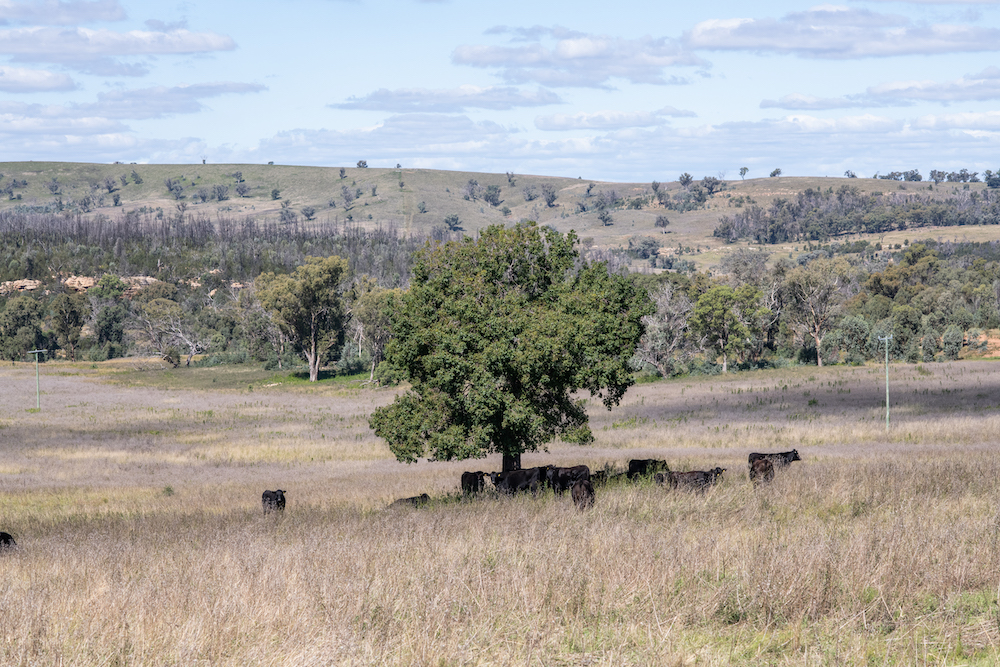
Gundooee Getaways on the Wagyu farm
With so much to learn every day, Rob wants to share some of his knowledge by encouraging people to visit his farm. And so, Gundooee Getaways was born.
On a typical getaway, visitors can learn how their food is produced and cooked. Again, Rob takes a holistic approach to the entire process, and his aim is educating his visitors on how poor food and lifestyle choices affect things universally.
“Guests are not sure what they’re in for when they get here. We often end up talking about quite personal things, and they can see who I am and vice versa. We have meaningful discussions about life and that is all a part of the experience. Everyone has a story or several to tell.”
Rob Lennon.
The hands-on farm experience also includes a two-hour tour, and a delicious Gundooee beef meal which Rob’s partner helps make with vegies primarily from their garden.
“It’s important that we challenge people’s perceptions. I can make mistakes and still have an open and perceptive mind. There is always another way of doing things,” Rob says.
Rob is as passionate about sustainable farming practices as he is about helping people realise the benefits of regenerative farming for the environment, and for their personal health. He says he likes to help and encourage people to live well.
He believes farmers have the power to significantly help reduce the impact we have on climate change – by challenging current industrialised farming methods and converting to more traditional and organic practices.
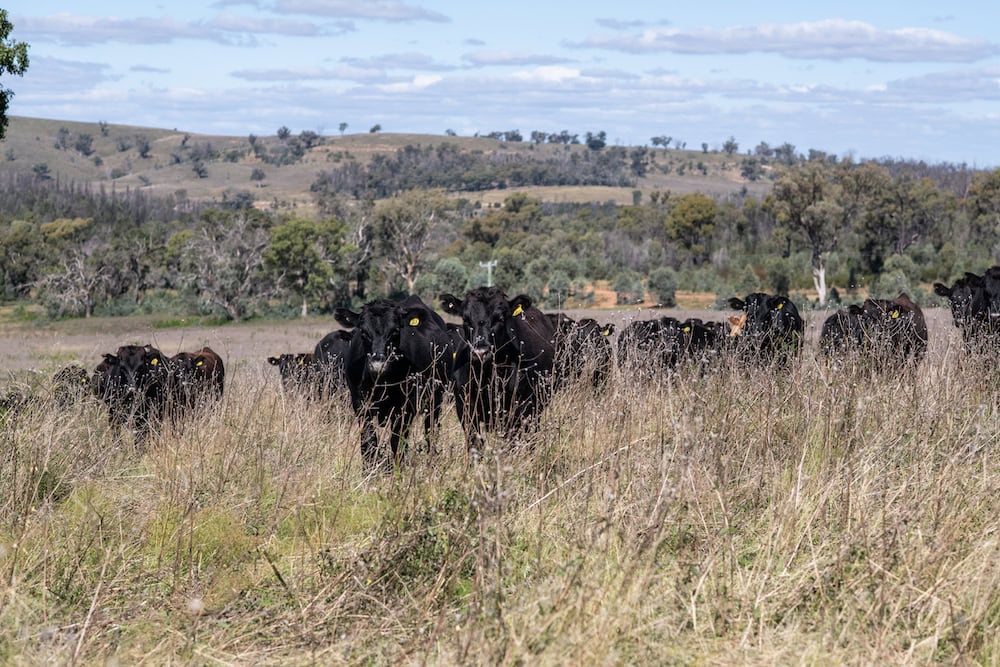
“I love getting up and being able to prioritise what I personally believe is important,” Rob says. “I learn more every day, and I have the rare opportunity to look after the environment. The cattle don’t run away from me – they trust me, and that’s also so rewarding.”
If you enjoyed this story on soil health and organic Wagyu, you might like our feature on soil carbon farming.


